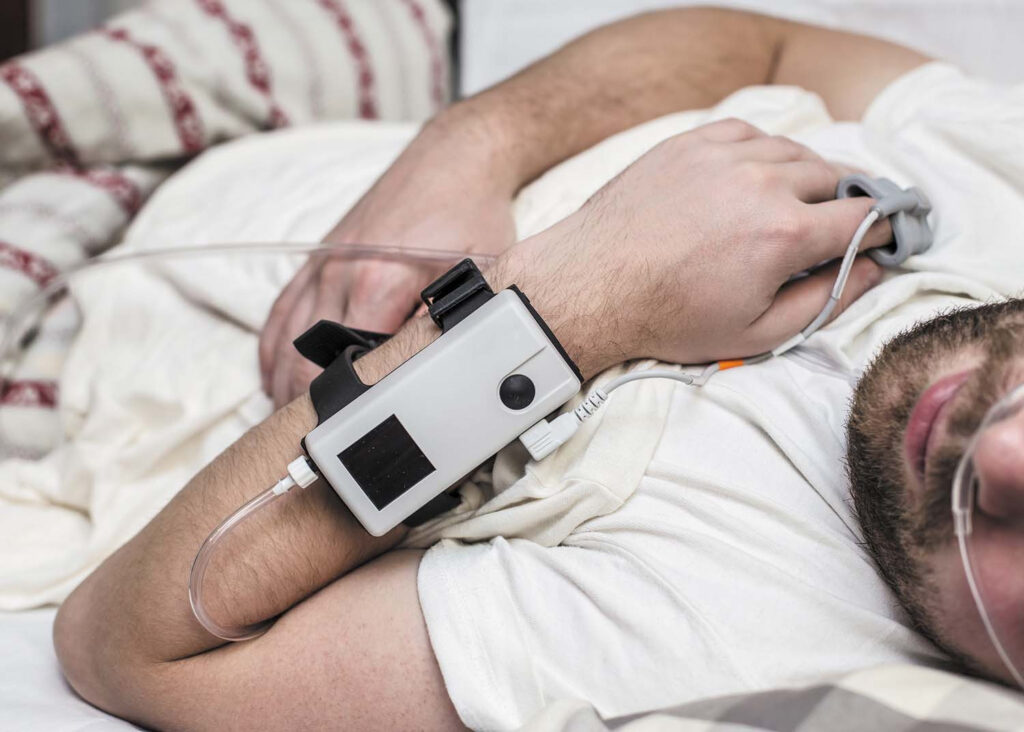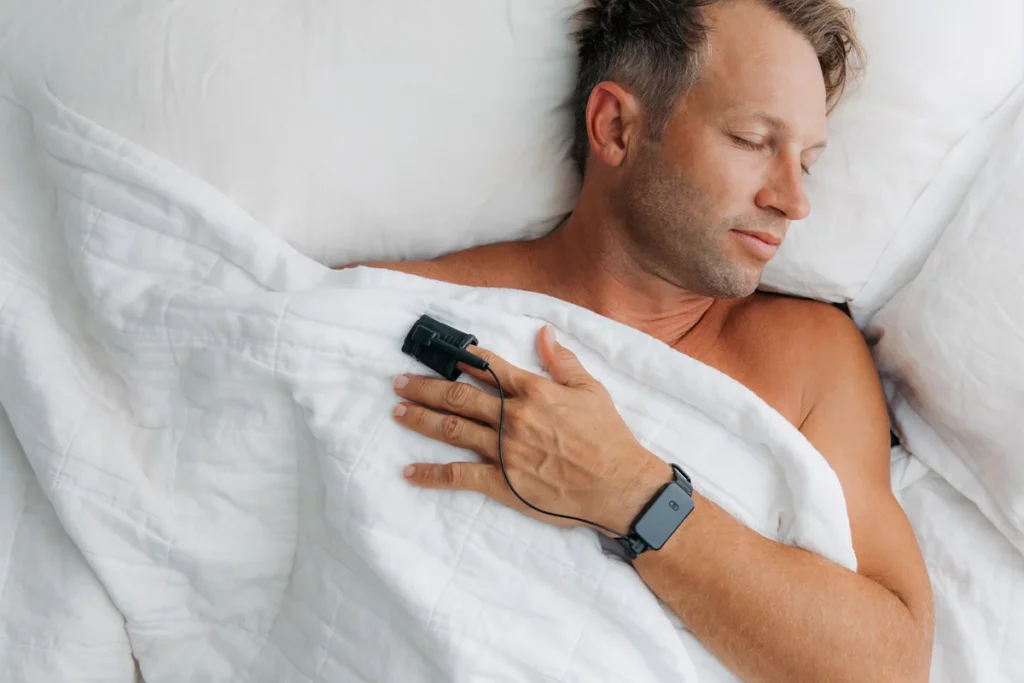Sleep apnea is a common sleep disorder that affects many individuals, leading to serious health issues if left untreated. In Adelaide, numerous facilities provide comprehensive testing for this condition, ensuring that patients receive an accurate diagnosis. This article will explore the nature of sleep apnea, the importance of an accurate diagnosis, the different types of tests available, where to get tested in Adelaide, and how to prepare for your sleep apnea test.
Understanding Sleep Apnea
Sleep apnea is a sleep disorder characterized by repeated interruptions in breathing during sleep. These interruptions can last for a few seconds to minutes and may occur multiple times an hour, resulting in poor sleep quality and, over time, additional health problems. The most common types of sleep apnea are obstructive sleep apnea, central sleep apnea, and complex sleep apnea syndrome. Each of these variants has different underlying mechanisms and may require specific diagnostic approaches. Obstructive sleep apnea, for instance, is often caused by the relaxation of throat muscles, which can block the airway, while central sleep apnea is related to the brain’s failure to send proper signals to the muscles that control breathing. Understanding these distinctions is vital for effective treatment and management.
Adelaide offers various options for individuals seeking testing for sleep apnea test Adeliade. Understanding where to go can significantly streamline the process of diagnosis and treatment.
Symptoms of Sleep Apnea
The symptoms of sleep apnea can often go unnoticed, especially if the individual is not aware of their disrupted sleep. Common symptoms include:
- Loud snoring
- Choking or gasping during sleep
- Excessive daytime sleepiness
- Difficulties concentrating
- Morning headaches
- Irritability and mood changes
If you experience any combination of these symptoms, it’s essential to consult with a healthcare professional. Your symptoms may be indicative of sleep apnea, which could require further evaluation and testing. In some cases, partners or family members may notice these symptoms first, such as loud snoring or episodes of gasping, prompting individuals to seek medical advice. The impact of sleep apnea extends beyond just sleep quality; it can lead to significant cognitive and emotional challenges, affecting daily life and overall well-being.

Causes and Risk Factors of Sleep Apnea
Understanding the causes and risk factors associated with sleep apnea is crucial in recognizing who might be at a higher risk. Some of the primary risk factors include:
- Obesity
- Excessive alcohol consumption
- Smoking
- Certain medical conditions (such as diabetes or hypertension)
- Family history of sleep apnea
- Age (more common in older adults)
- Being male
Recognizing these risk factors can help in seeking timely medical advice and potential testing for sleep apnea. Furthermore, lifestyle choices play a significant role in the development and exacerbation of sleep apnea. For instance, weight loss can dramatically improve symptoms in overweight individuals, while quitting smoking and reducing alcohol intake can also contribute to better sleep quality. Additionally, certain anatomical features, such as a thick neck or enlarged tonsils, can predispose individuals to obstructive sleep apnea, highlighting the importance of a comprehensive evaluation by a healthcare provider to tailor treatment strategies effectively.
The Importance of Accurate Diagnosis
Accurate diagnosis of sleep apnea is paramount for effective management and treatment. Misdiagnosis can lead to serious health consequences, as untreated sleep apnea can contribute to various health issues such as cardiovascular problems, diabetes, and depression.
Misdiagnosis and Its Consequences
Misdiagnosis can occur when symptoms are attributed to other unrelated issues, leading to continued suffering without appropriate treatment. Common mistaken diagnoses may include depression, anxiety, or chronic fatigue syndrome, which can prolong patient suffering and delay effective treatment. Understanding the specific symptoms and seeking professional evaluation can help mitigate these risks. For instance, individuals may experience excessive daytime sleepiness, loud snoring, or episodes of gasping for air during sleep, which are hallmark signs of sleep apnea. Recognizing these symptoms and discussing them with a healthcare provider can be crucial in avoiding the pitfalls of misdiagnosis. Learn more about depression on https://www.nimh.nih.gov/health/topics/depression
Benefits of Early Detection
Early detection of sleep apnea allows for timely intervention, which can significantly improve the quality of life for affected individuals. Benefits include:
- Improved sleep quality, leading to better overall health
- Reduced risk of developing serious health conditions, such as heart disease
- Enhanced cognitive functioning and responsiveness
- Improvement in mood and mental health
- Overall better well-being and increased energy levels
With these advantages, it’s clear that seeking a proper diagnosis should be a priority for anyone suspecting they may have sleep apnea. Furthermore, early diagnosis can also facilitate lifestyle changes that contribute to better sleep hygiene. For example, individuals may be advised to maintain a healthy weight, avoid alcohol consumption before bedtime, and establish a consistent sleep schedule. These proactive measures not only enhance the effectiveness of any prescribed treatments but also empower individuals to take charge of their health, fostering a sense of agency in their well-being. Additionally, support groups and educational resources can provide valuable information and community, helping individuals navigate their journey towards better sleep health.
Different Types of Sleep Apnea Tests
When it comes to testing for sleep apnea, there are generally two main types of assessments utilized: home sleep tests and in-lab sleep tests. Understanding these types can help patients be better prepared for what to expect.
Home Sleep Tests
Home sleep tests (HST) have become increasingly popular due to their convenience. They allow patients to undergo testing in the comfort of their own home, typically involving minimal equipment. These tests usually monitor:
- Breathing patterns
- Oxygen levels
- Heart rate
- Sleep position
While home tests are effective for certain cases of obstructive sleep apnea, they may not always identify other complex variations of the disorder. Therefore, a careful assessment by a healthcare provider is necessary to determine if an HST is appropriate. Patients are often provided with easy-to-follow instructions on how to set up the equipment and what to do during the night, which can alleviate anxiety about the testing process. Moreover, the results from home tests can be available relatively quickly, allowing for faster initiation of treatment if sleep apnea is diagnosed. To read more about oxygen click here.
In-Lab Sleep Tests
For a more comprehensive evaluation, in-lab sleep tests, or polysomnography, may be required. Conducted in a sleep clinic or hospital, this test records a range of data while the patient sleeps. Key components include:
- Brain wave activity
- Eye movements
- Muscle activity
- Heart rate and rhythm
- Breathing patterns
- Blood oxygen levels
This detailed data collection allows for a more accurate diagnosis and can help identify other sleep disorders that may coexist with sleep apnea, leading to a more tailored treatment approach. Patients undergoing in-lab tests often find the environment to be a bit more clinical, which can be intimidating. However, the presence of trained sleep technicians can provide reassurance and support throughout the night. Additionally, the ability to monitor and adjust equipment in real-time can lead to more precise results, making in-lab tests a critical tool for understanding the full scope of a patient’s sleep health.
Where to Get Tested in Adelaide
Sleep Clinics in Adelaide
Several dedicated sleep clinics specialize in diagnosing and treating sleep disorders. These clinics provide a range of services, from initial consultations to comprehensive testing. Some reputable sleep clinics offer:
- Personalized assessments and testing
- Immediate access to specialized healthcare providers
- Follow-up consultations to discuss results and treatments
It’s beneficial to research local clinics and consider their reputation, services, and patient reviews to choose the best facility for your needs. Many clinics also provide educational resources, including workshops and seminars, to help patients understand sleep apnea and its implications better. This knowledge can empower individuals to make informed decisions regarding their health and treatment options.
Hospital Sleep Study Units
In addition to sleep clinics, many hospitals in Adelaide have dedicated sleep study units. These units often have advanced technology and are staffed by experienced professionals who can provide thorough sleep assessments. Services offered may include:
- Comprehensive in-lab testing
- Collaboration with multi-disciplinary healthcare teams
- Access to a range of specialists for related health issues
Visiting a hospital sleep study unit can be a suitable option for those needing more extensive evaluation or who have complex health concerns requiring interdisciplinary management. Furthermore, hospitals often have the advantage of immediate access to emergency care if needed, providing an additional layer of safety for patients undergoing testing. Many hospital units also engage in ongoing research, which can lead to innovative treatment options and contribute to the broader understanding of sleep disorders.

Preparing for Your Sleep Apnea Test
Preparing for a sleep apnea test involves several important steps that can influence the accuracy of the results. Understanding what to expect can alleviate anxiety and ensure a smoother testing process.
What to Expect During the Test
For home sleep tests, patients will receive a kit that typically includes a device to record breathing, oxygen levels, and heart rate. Instructions will be provided on how to properly set up and use the equipment. It’s important to follow these instructions carefully to ensure accurate readings.
For in-lab tests, patients are usually asked to arrive at the clinic or hospital in the early evening. They will be fitted with sensors and will sleep in a monitored environment. During this time, healthcare professionals will observe data to evaluate your sleep patterns, breathing, and heart activity accurately. The environment is designed to be as comfortable as possible, allowing patients to relax and fall asleep naturally, which is crucial for obtaining reliable data.
Post-Test Procedures
After the test, especially for in-lab studies, the data will be analyzed by a sleep specialist. The results will typically be discussed in a follow-up appointment, where treatment options can be explored if sleep apnea is diagnosed. Treatment may include lifestyle changes, the use of CPAP machines, or other procedures depending on the severity of the condition. It’s essential to understand that each treatment plan is tailored to the individual, taking into account their unique health profile and lifestyle needs.
In addition to the immediate follow-up, many patients find it beneficial to keep a sleep diary leading up to their appointment. This diary can include notes on sleep patterns, daily habits, and any symptoms experienced, which can provide valuable insights for the healthcare provider. Furthermore, support groups and educational resources are often available, offering patients a chance to connect with others facing similar challenges and to learn more about managing their condition effectively. Engaging in these resources can empower patients to take an active role in their treatment journey and improve their overall quality of life.
Read more at: Sleep Apnea Home Test Kit Australia The Convenient Alternative




